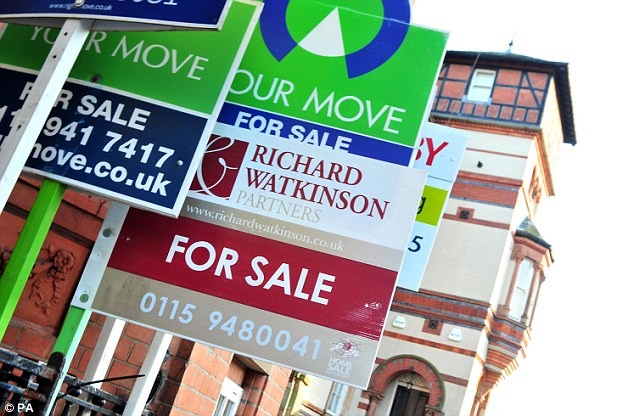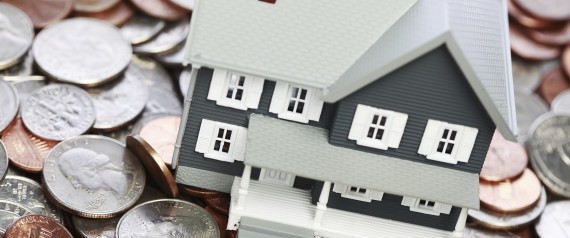When rates rise must home prices fall
Post on: 3 Июль, 2015 No Comment

When rates rise, must home prices fall?
By Holden Lewis • Bankrate.com
Mortgage rates fell for three years, and home prices skyrocketed in many parts of the country. Now that mortgage rates are rising, people wonder if home prices will fall.
Don’t bet on it.
Prices could drop in some places, sometimes in response to economic shocks such as plant closings and sometimes from higher interest rates. In some areas, rising mortgage rates could actually cause a brief spike in home prices as procrastinators finally decide to make offers on houses, only to find themselves in unforeseen bidding wars with fellow procrastinators.
In the long run, it’s impossible to predict whether rising interest rates will push home prices downward in a particular neighborhood. It’s always hazardous to try to time markets, whether in stocks or houses. Your best bet is to time the buying and selling of your home based on your needs, not on what you expect the local housing market to do.
Mortgage rates and home prices: Two theories
When it comes to mortgage rates and home prices, there are two schools of thought.
One theory is that demographic and political trends have more impact than interest rates, and that home prices won’t fall — at least, not nationwide — but the pace of price appreciation will slow as rates increase.
The other theory places more emphasis on human nature than on demographics and politics. It says that people know how much they can afford to spend every month on housing, so when mortgage rates rise, people buy less-expensive houses to accommodate higher interest payments. When large numbers of people do this, they drive down prices.
The connection between rates, housing pricing
The theory that rates and prices are related makes intuitive sense, and Jack Harris buys it. Harris, research economist for Texas A&M University’s Real Estate Center, notes that, at least in Texas, every time rates dipped in the past two years, prices went up.
It makes sense that the opposite will happen, because as rates rise, demand is going to fall off. The higher rates are probably going to knock some people out of the market.
The way Harris sees it, a lot of home buyers have been stretching their budgets as far as they could so they could buy houses at extremely low interest rates. If rates rise 1 or 2 percentage points from their June lows, those prospective buyers will either have to continue to rent (or live with their parents) or adjust their sights downward, buying cheaper homes than they would have been able to afford when mortgage rates were much lower.
Harris expects to see a lot of people adjusting their sights downward when rates hit about 6.75 or 7 percent, and for overall housing demand to fall when rates are about a percentage point higher than that. This week, the last week of July 2003, the average rate is a little under 6.25 percent.
Meantime, he says, rising rates could have the paradoxical effect of increasing house prices for a while. The market heats up when interest rates go up, he says. People feel like they can’t take their time; they’ve got to go ahead and close the sale before rates get higher.
Indeed, that’s happening in some places, says Diane Saatchi, president of Dayton-Halstead Realty in the Hamptons of Long Island.

A lot of people realized that the deal to make now was not with the price, but with the financing, Saatchi says. Now, with the interest rates picking up, everybody has seen the bottom and they want to lock in a rate for themselves not too far from the bottom.
Prices temporarily buoyed
As a result, sellers suddenly get multiple offers, which has the effect of keeping prices up. Like Harris, Saatchi thinks that, over the long term, higher rates mean that buyers will pay lower prices for houses, in some cases settling for less house than they would have been able to afford a few months earlier.
Most economists in the housing industry agree that the torrid pace of home-price appreciation will slow, but they don’t foresee widespread price decreases. They point to demographic factors: the United States is in the midst of a huge immigration boom (of the 32.5 million foreign-born U.S. residents, almost half arrived since 1990), and the offspring of the Baby Boomers are moving out and forming families.
Immigration and the Baby Boom echo create a lot of demand for housing at a time when political factors — such as environmental concerns and smart growth initiatives — make it harder to build new housing developments, says Doug Duncan, chief economist for the Mortgage Bankers Association.
It’s our belief that demand is going to increase at a faster rate than supply, thereby increasing home prices, Duncan says.
He notes that there has never been a full year in the history of the modern U.S. economy when home prices have fallen across the entire U.S. economy.
That leaves Duncan a lot of wiggle room if the housing markets of entire states or regions go kaput for a while.














